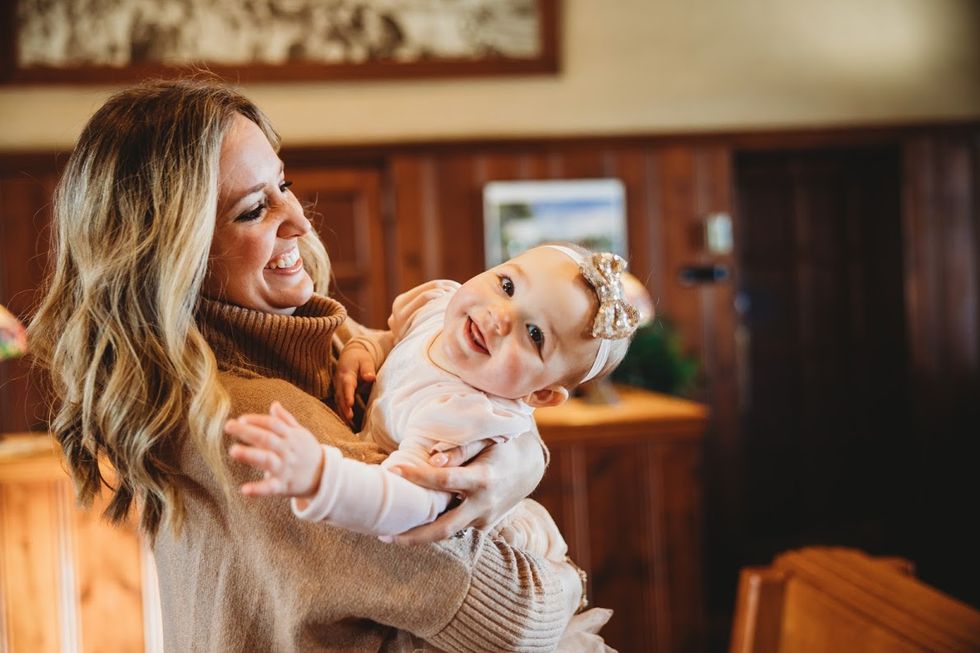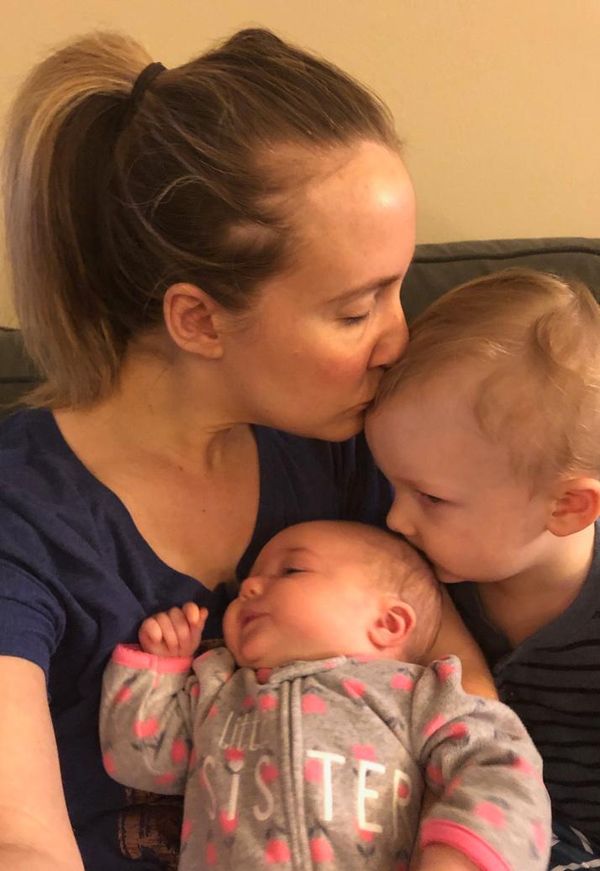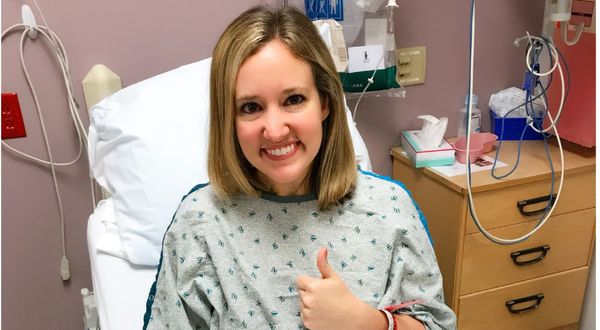Coronavirus is challenging for everyone right now, but there is an extra level of challenge for those of us, like me, who are immunocompromised.
I have Crohn's disease, which is a form of inflammatory bowel disease (IBD) that leaves me with a compromised immune system. In some ways, I feel like I actually have a leg up on people because for more than a decade, I've been in the habit of washing my hands frequently, taking my shoes off when I enter my home, and changing my clothes to prevent illness. When you've lived as an immunocompromised person for so many years, it becomes part of your daily life. But I still have to be so careful, which isn't always easy.
This past fall, for example, my son had a stomach virus. So in typical mom fashion, I cleaned up after him, hugged him and loved on him, and I didn't keep any distance. And of course, I ended up catching his virus. But what was a 24-hour illness for him landed me in the hospital with leukopenia (low white blood cell count), low potassium and severe acute gastrointestinal enteritis.
In general, I keep a low profile. I work from home, and I often find that I don't leave the house. So nothing really changes for me in times of social distancing. But one thing I've learned for sure—when you are immunocompromised, you need to protect yourself, stay on your biologic therapies (antibodies created in the laboratory that stop certain proteins in the body from causing inflammation) or other medicine, and don't panic.
But it took me a long time to reach this point.
My journey with IBD started two months after college graduation. After being completely healthy my entire childhood, I had severe abdominal pains and high fevers. At 21 years old, I found myself being cared for by my mom, who is a nurse. I was incapacitated, and she was trying to get my fevers under control by putting me in the bathtub. The doctor thought it was my gallbladder and ultrasounds of my abdomen came up with nothing. It wasn't until my mom returned home from work one day and found me lying on the couch in my PJs at 5pm that she knew something was very wrong. I was the kind of person who always showered, did my makeup and got dressed—no matter if I was staying home for the day or going to an early morning college class. My mom wasted no time and drove me straight to the emergency room.
Upon taking my vitals and giving me a rectal exam, the doctor told me, "You are malnourished. You are dehydrated. And I believe you have Crohn's disease. We are going to admit you to the hospital and give you a colonoscopy to confirm your diagnosis." He was serious, and I was in shock. I spent 8 days in the hospital and was sick the entire time I was there.
I remember feeling absolutely devastated. I was now taking 22 pills a day, including 60 mg of prednisone, which made me irritable and gave me puffy cheeks. My bones hurt and I felt like a 90-year-old woman. And to add to my sadness, my college boyfriend who lived 1-1/2 hours away and had been part of my future plans, never visited me in the hospital and broke up with me over the phone the day I got home from the hospital. I grappled with so many questions: Would I ever find love again? Will I be able to work? How am I going to get through this? What will this mean for my future?
After adjusting to my new situation, I decided that I wasn't going to let this disease stop me from following my dreams. I ended up landing my first television job two months after diagnosis. I moved away from my family and within two years, at the age of 23, had become a morning news anchor in Wisconsin. Three years later, I started on a biologic, a miracle drug for me, that's allowed me to accomplish a lot and live a beautiful life.
This is not to say that I haven't had difficulties. The issue with IBD is that you can wake up and feel fantastic in the morning and be in the hospital that night for an issue. One day in particular that I remember was in 2014. I had anchored four hours of news that morning, ran 9 miles to train for a half marathon and drove to St. Louis with my dog to spend the weekend with my boyfriend (who is now my husband). After a full day of feeling great, I ended up getting hospitalized that night with a bowel obstruction. This was followed by several hospitalizations and multiple bowel obstructions over the next 16 months.
In 2015, I ended up getting surgery to remove 18 inches of my small intestine, my appendix, and the ileocecal valve (which is basically what allows you to hold it when you have to go to the bathroom). This led to bathroom urgency, which inevitably led to accidents. One of the most mortifying moments of my life was when I had an accident at home, in my office, alone! I couldn't even drive to Chicago to visit my family as a four-hour drive in the car was not an option. When you have to go, you have to go immediately! This brought up many questions for me: How can I work? What if I can't get to the bathroom in time? Should I accept a speaking engagement? Can I go out with friends? Fortunately, after some time, this urgency became less and now I can even drive to Chicago without stopping.
The surgery gave me a fresh start. I was married 10 months later, had two flawless pregnancies and now have two healthy children. I am extremely grateful. As a mom, I still feel a lot of guilt when I'm home. I don't always have energy to take my kids to the park and I need to run to the bathroom during our play time. Luckily, my children understand and are gaining empathy on a daily basis. They see me doing an injection and ask questions; they understand that I may need to rest. I've spoken with adults who have parents with IBD and they see their parents as warriors. None of us know what the next day will bring, but we know that if we have the support of our family and friends, we will get through it.
As we all navigate this difficult time with coronavirus, I will remain a warrior. I have no other choice.
This post was created with support from Bausch Health.







